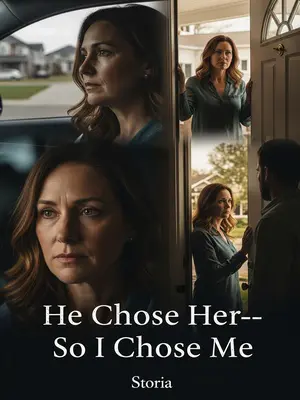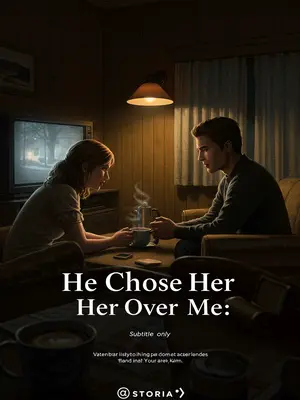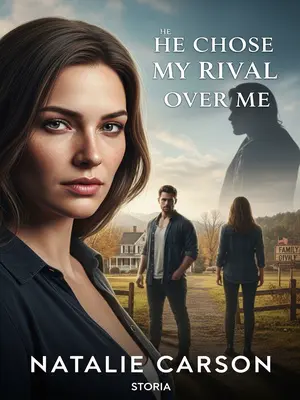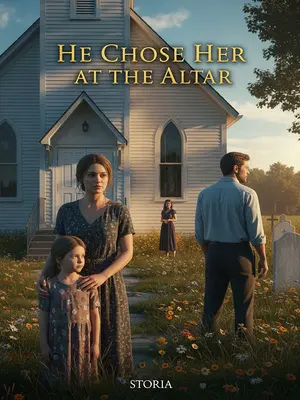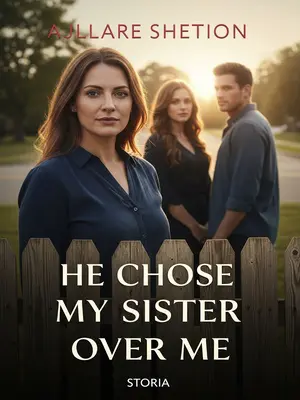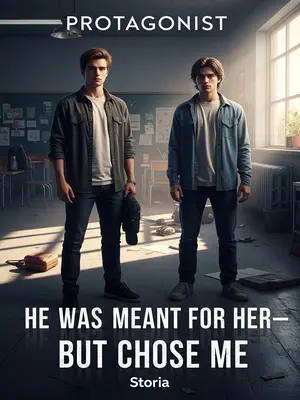Chapter 2: Growing Up in the Shadows
Separated by the French doors, I couldn’t see Chris’s expression clearly. But from his tone—completely lacking apology—it wasn’t hard to guess his mood. He was still that same cold, distant figure, as if nothing could shake his composure.
The glass between us caught our reflections, turning Chris’s features into a blur, just an outline of a man I thought I knew. The low hum of the city outside—sirens in the distance, a dog barking down the block—made everything feel farther away, more unreal.
I used to think I was special to him. After all, our dads were close friends, and we grew up together. When we were kids, both families even joked about us getting married someday.
At those backyard barbecues, running barefoot over the lawn, sneaking sodas from the cooler while our parents argued over who’d win the next Cubs game—Chris would dare me to race him to the fence, loser had to mow the lawn for a week. It always seemed inevitable, the two of us. People would wink and nudge, and Chris would roll his eyes, but sometimes he’d squeeze my hand under the table, and I’d believe him. I’d believe in us.
But it wasn’t until Lily Mason arrived in Chicago that I understood what it meant to be pushed aside.
I didn’t see it coming. She was quiet, a little shy, and new to everything—new to our city’s rhythm, the way the El rattles at night, the way Lake Michigan glitters at sunrise. Chris, who always kept people at arm’s length, would take her to summer festivals, buy her bracelets, personally teach her how things worked in the city, and even worried that her uncle and aunt might treat her badly, so he brought her into the Howell family’s home to care for her.
Watching him fuss over her, I felt invisible, as if I were suddenly extra in my own story. I could still hear his laughter echoing through the Howell’s foyer as he explained Chicago-style pizza to Lily, his voice softer than I’d ever heard it with me.
All because Mr. Mason, before he passed, had asked Chris to look after his only daughter.
Sometimes, late at night, I wondered if Chris really knew what he was signing up for, or if he was just following through on the last thing anyone ever asked of him. But either way, it didn’t change the outcome.
In our community, teachers are highly respected, so Chris’s actions didn’t draw criticism. On the contrary, people praised him for being such a stand-up guy.
The local church newsletter even ran a little piece on him—Howell Family’s Son Honors Late Mentor, Welcomes Orphaned Girl. My mother clipped it and stuck it on the fridge, next to old report cards and Christmas cards from the neighbors. I’d see it every morning as I reached for the milk, the print as sharp as a paper cut.
Last winter, the three of us went to church to light candles. It suddenly started snowing outside. Chris was worried the roads would get dangerous, so he took the only umbrella and walked Lily down the hill first. Sure enough, the heavy snow blocked the road, and I waited in the church for a day and a night before my dad came to get me.
I remember sitting in the pew as the light faded, watching my breath curl in the air. I pulled my coat tighter, praying the heater would kick on, but it never did. My phone battery died at midnight. The stained-glass windows glowed blue in the streetlights, frost creeping up the edges. The janitor brought me tea in a styrofoam cup, and I sipped it, pretending I wasn’t stranded. I kept thinking Chris would come back, but the doors never opened for me. Dad’s headlights finally cut through the storm, and I stumbled out, knees stiff, dignity even stiffer.
At the garden party this March, Lily accidentally picked the peony that was the mayor’s wife’s favorite. She was so scared she went pale. Chris immediately tucked the flower into my hair, saying that Lily was new in town and didn’t have any connections. If she got in trouble with someone important, she’d have a hard time fitting in. Luckily, the mayor’s wife and my mom were old friends, so she wasn’t mad. Instead, she praised me for having the guts to “pick the flower while it’s blooming.”
I still remember the way Chris’s hands felt—steady, gentle, but not lingering. The garden was alive with chatter, the smell of grilled corn and fresh cut grass. I smiled for the crowd, but my jaw ached from holding it all in. The mayor’s wife winked at me as if I’d performed some great act of social bravery. Lily just clung to Chris’s sleeve, shrinking behind him like a shadow.
I’m not exactly a pushover. But whenever I got upset, Chris would always say, “Looking after Lily was something my mentor asked me to do—I can’t just ignore that.”
It was always duty, always responsibility—never about me. His words would drop like ice cubes into a glass, chilling whatever warmth might have been left between us. I’d laugh it off, acting like nothing could touch me, but inside, it burned.
Those feelings I kept hidden would suddenly get stuck in my throat—bitter and impossible to say. I could only put on a calm, gracious front, treating Lily like a little sister.
I’d pat her hand, braid her hair for school events, lend her my favorite novels. I’d smile through every ache, the mask never slipping. It’s what Chicago girls do, after all—keep it classy, don’t let them see you sweat.
Rosary beads from St. Mary’s, vintage hairpins from the Lakeview flea market, and old family photos in gilded frames—as long as she wanted them, I’d hand them over. But the two of them took my efforts for granted.
It became routine—Lily would ask, Chris would look at me expectantly, and I’d fold. Sometimes it felt like I was just a prop, the nice girl who gave things up, the one who kept peace by disappearing bit by bit.
That day on the polo field, Lily knew full well the prize was my aunt’s keepsake, yet she still begged me to win it for her. I refused, and she looked so hurt, like I’d bullied her. Everyone around me told me to give in to Lily, the poor orphaned girl. Chris also looked at me with disappointment, blaming me for not being generous enough. When he saw I wouldn’t budge, he just got on the field himself, determined to win the hairpin for Lily.
It was a humiliating kind of clarity—being expected to step aside for someone else’s happiness. I gripped the mallet so hard my knuckles went white. When Chris’s shot collided with my leg, I tasted copper and pride, and somewhere inside, I broke a little. But I also felt something harden—a quiet promise that next time, I’d play for myself.
In the middle of that sharp pain, I suddenly understood. The person Mr. Mason had entrusted was Chris. Why should I get dragged into this mess?
That thought crystallized in the cold, early-spring air. My future didn’t have to be spent orbiting someone else’s obligation. For the first time in years, I felt a flicker of relief, even as the ache throbbed deeper in my leg.

